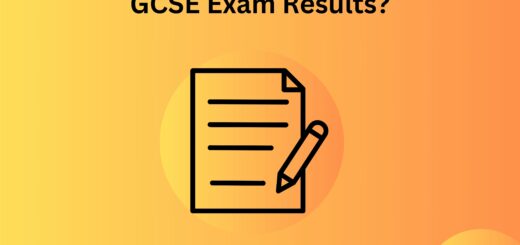12 Effective Revision Techniques For GCSE and A-Level
GCSEs and A-Levels are both quite challenging. It is not easy to score well in these exams. You will need to do a lot of hard work to score high in them. Thus it is not only important to study for the exam but also to have a good revision of it. We will help you to learn various techniques by which you can revise for your GCSEs and A-level exams.
Quick Takeaways
1. Start as early as you can
- Following are the revision techniques for GCSEs and A-levels-
2. Set up your goals
3. Have discussions
4. Practice the previous questions in exams
5. Creating flashcards
6. Being positive
7. Take help
8. Take breaks
9. Recording notes
10. Testing yourself
11. Visual aids
12. Use more than one technique to revise
However, you must read till the end so that you get a better understanding of the revision techniques for GCSEs and A-levels.

12 Effective Revision Techniques For GCSE and A-Level
When you are sitting for your GCSE exams, you must remember that after completing year 11, you will have to sit for A-levels. You will need to revise properly for both GCSEs and A-levels. Following are the ways that will help you to revise for your GCSEs and A-Levels exams-
1. Start as early as you can
These exams are hard to crack, and thus it is important that you have started preparing yourself at least 1 month before the exam. The pile of work from months of lectures can leave you feeling worried and stressed. When you’re worried, it’s difficult for your brain to concentrate and remember things. Start revising as soon as possible to avoid panicking and to offer yourself the greatest opportunity. Don’t worry if you haven’t begun yet. Create a schedule for your revisions first. Divide the week into study sessions for various subjects. Give additional time to those subjects that are difficult for you and vice versa.
2. Set up your goals
Setting goals and rewards for yourself is one of the greatest revision advice for GCSE and A-level students. There is no greater feeling than completing a major task on your to-do list. This not only helps you to revise but helps you to become more capable of completing difficult tasks. Start with setting up the easy tasks and then gradually move towards the difficult ones. When you finish revising, be sure to take the time to treat yourself. Do something that you enjoy.
3. Have discussions
When it comes to areas like English literature that require discussion of opinions, try to discuss various topics with your friends and classmates about what you think. You will be able to establish your own opinions as you will also be open to their viewpoints. Discuss your positions with one another and make an effort to convince them with your justifications. You’ll be better able to express yourself during the exam with the help of this technique.

4. Practice the previous questions in exams
The most important GCSE and A-level revision advice is to look over previous exam papers. It helps you to become familiar with the exam’s design. You also become comfortable with how the questions are phrased in these exams. One of the most frequently cited things that most students do for skipping questions on a test is that they do not understand the question.
The problem isn’t that you lack the knowledge, but rather that you’re not used to having questions asked of you in this manner. Practising the previous questions paper will help you to understand the pattern of the questions that will come in the exam. This technique will help you get to save from failing the GCSE exams or missing the exams.
5. Creating flashcards
Another good revising strategy is using flashcards. They eliminate all the information that is of no use to you. This is why they function so well. Important facts and data that are briefly presented stick in your memory, so you can apply them in your exams. This revising strategy might not be for you if you want to sit down and study in detail and by knowing each point of the specific topic.
6. Being positive
Positive thinking is one of the ideal revision strategies for GCSE and A-level exams. Seeing the positive side of things will help you not only get through your tests but also the tough situations in your life. Although it’s not always possible to have happy thoughts, there are things we can do to improve our mood. Things like regular exercising, rewarding ourselves, etc can help us see the world more positively. Don’t give up or do any things that you should avoid doing at the time of exams.

7. Take help
There are instances when you simply feel lost and unable to find the solutions. Being stuck is a very natural aspect of learning. There are numerous approaches to problem-solving. You can ask your teacher for assistance after class or during office hours. There are homework groups that address your queries. You’ll know you’re not alone because other teenagers in the room will be in a similar situation. You can hire a tutor if you’d prefer more one-on-one attention from someone who can understand what it’s like to go through exams and help them to learn. Suppose you want to become an accountant and are studying A-level accountancy, you can take help from someone who already is an accountant.
8. Take breaks
When you’re on a roll, You may find it helpful to continue revising for several hours, but you must take pauses frequently. Try to take a break at least once an hour, it will help you to refresh your mind. According to recent studies, the average adult can only focus for about 20 minutes. With the rise of mobile technology, this number may suddenly get lower. You shouldn’t push yourself to focus if you’re not feeling completely focused. Go on a break. Take a walk, drink your favourite drink and return back. When you return to your desk to study, you’ll feel renewed and ready to tackle the books once more.
9. Recording notes
We all dislike hearing our speech played back on tape. But switching from reading to listening can be an excellent approach to help you remember what you are studying. Many students find this approach suitable approach for them. Your notes and phone are all you need to record yourself reading. The nicest feature of this revising strategy is that you can use headphones to perform it any place. Some students believe that listening to their own tape at night is beneficial.

10. Testing yourself
The most crucial component of your revision is testing yourself. It has been demonstrated through research that spending a specific amount of study time testing yourself helps you retain the material. It is known as the testing effect. Testing yourself helps you to know how much you know and what type of questions you can complete much faster. Also will help you to enhance your memory, especially during stressful situations.
11. Visual aids
Visual aids can serve as an excellent reminder of the material you need to know for your tests. Simply pasting formulas, statistics, and keywords in your study space can aid with remembering tough formulas. This will help you to remember most of the things during your exams. Using visual aids is a fantastic method to help you recall crucial information. If you make it a habit to use visual aids, you’ll be able to score higher in such competitive exams.
12. Use more than one technique to revise
It is possible to make the mistake of using just one revision method. For instance, it may be tempting to simply review with visual aids if you are a visual learner. Your brain will eventually get habituated to this method of learning. It may make it less effective even though it may be effective for a little period of time. Instead, challenge yourself more by studying in a new way. To change things up mix two or more than two techniques.
Conclusion
When you are preparing for your GCSEs and A-Levels exams, you must be prepared well for your exams. Thus it is important to revise properly before your exams. You must start as early as possible and set up a proper timetable and goals for your revisions. Don’t forget to take breaks in between your revision time. There are many other ways by which you can revise properly. This article includes those techniques to help you to revise for your GCSEs and A-Levels exams.


